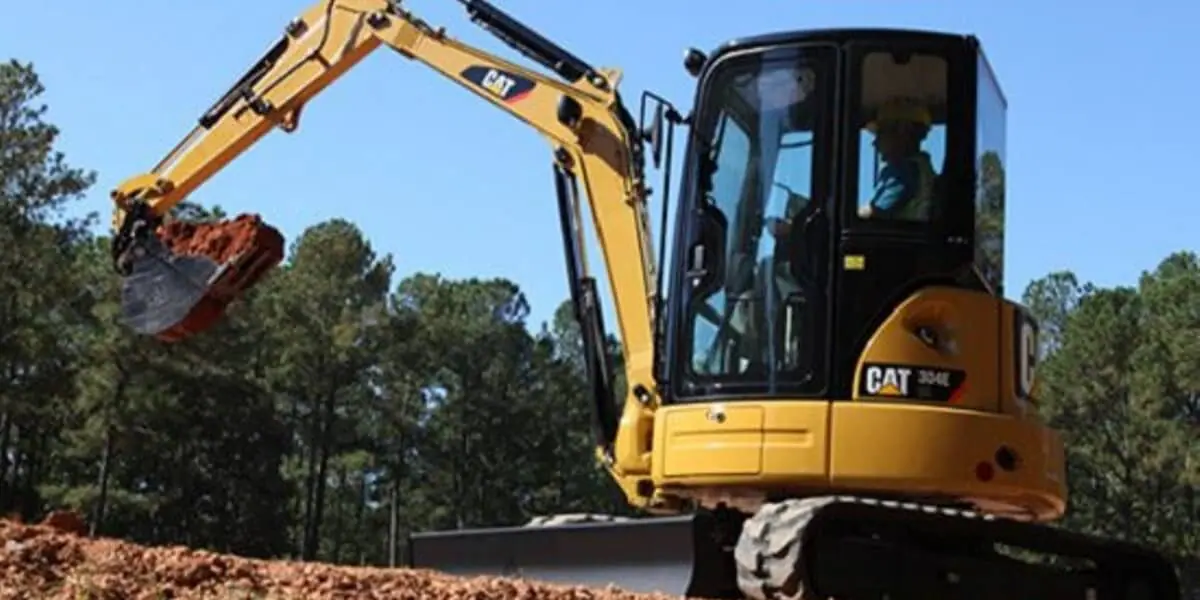
Trenching & Excavation Safety Guide
Category: Rental
At your job site, you might need to create trenches or excavations to get your work done. Performing this work correctly is an essential part of minimizing the potential safety issues associated with working underground. If soil falls onto a worker inside of a trench, it could cause serious injury or even death. You can protect your employees from these hazards by using the proper safety mechanisms.
Cave-ins, drowning, electrocution, toxic fumes, accidents and injuries relating to proper access and egress and working in and around heavy equipment all pose a serious threat to your people and valuable assets. Follow regulations from the Occupational Safety and Health Administration (OSHA) to keep your workers safe during trenching and excavating.
Learn About OSHA Trenching and Excavation Regulations
There are many potential hazards when working in mining, construction, oil exploration and other rugged industries. But perhaps none are more common or dangerous as trenching and excavation.
To protect against these concerns, the Occupational Safety and Health Administration (OSHA) has issued a variety of underground construction programs, policies and standards for businesses to follow. Consider the following underground trench safety tips to help ensure your next project complies with requirements.
Understand What OSHA Considers a Trench or Excavation
Any human-made cut, cavity, trench or depression made in the ground for removing earth is an excavation. An excavation with a length or depth greater than 15 feet is a trench. The only difference between the two is in the size. If you’re creating either of these, it falls within OSHA trenching and excavating regulations.
Know the Risks
A basic yet crucial step in becoming safety compliant is recognizing the inherent dangers. Cave-ins are a primary concern and among the most prevalent safety incidents leading to injuries and fatalities in excavation and trenching. When the walls of a trench collapse, workers can become trapped or buried beneath large amounts of soil, leading to serious injury or death. Some of the dangers of excavations include:
- Falling loads and debris: Equipment, machinery, soil and other workers can fall inside of a trench and cause severe issues to those working inside.
- Inhaling noxious or toxic fumes: Gasses, depleted oxygen levels and other hazards increase inside a trench.
- Flooding water: Rainstorms or other events can cause flooding that compromises the integrity of a trench’s walls and increases the risk of a cave-in.
- Trapped below the surface with no egress: Workers should have stairs, ladders or other ways to exit a trench. When a worker cannot leave the area if a hazard occurs, they can become stuck or face the risk of serious injury.
These are only some of the major risks associated with trenching and excavation, and these dangers are the reason following OSHA excavation standards is so critical. Ensuring the safety of your employees keeps them healthy, confident, and productive. Whenever you are trenching at a job site, keep safety standards in mind during every project phase.
Follow Best Practices
Most of the dangers of trenching and excavation can be mitigated by following a set of procedures designed to protect people working below ground. From keeping heavy machinery and material loads away from edges to taking the time to identify the location of electrical power lines and water pipes, construction crews should follow a safety checklist before starting work as a regular procedure. Some of OSHA’s guidelines for trenching and excavating safety include:
- Preplanning
- Calling 811
- Contacting local utility services
- Maintaining trench safety equipment
- Removing machinery from the edge of a trench
Additional OSHA mandates require testing for the environment and air quality concerns, pre-shift and after-rainstorm trench inspections and avoiding working under raised loads. All inspections must be performed by a competent employee with the expertise to identify present and/or potential issues leading to unsafe or unhealthy conditions.
Take Precautions for Trench and Excavation Safety
If you’re working on a trench that isn’t made of stable rock that’s five feet deep or greater, you are required to have a protective system in place. Depending on the particular project attributes such as the depth of the cut, type of soil, moisture levels, weather conditions and other factors, the appropriate sloping, shoring or shielding system is determined to guard against cave-ins.
Sloping a trench involves cutting the walls away from the excavation site, while shoring is the installation of supports that keep the soil in place. Shielding involves the use of trench boxes for workers to use while they are inside an excavation.
Larger and more complex trenches and excavations may require a customized protective system designed by a qualified professional. You are also required to provide ladders, ramps, steps or some other safe method of access and egress for all personnel.
Contact NMC Rental Services Today
Complying with OSHA trenching and excavation regulations helps keep you safe on the job. At NMC Rental Services, we understand the importance of safety during construction. That’s why we offer up-to-date, well-kept rental machines and equipment for trenching and excavating.
Our rental agreements are flexible to meet your needs, whether your project will last only a few days or several weeks. Our highly trained team is always available to help you find the trench safety equipment that will work best for your application. We also offer free quotes and competitive pricing.
For more information and assistance complying with OSHA trenching and excavation regulations, contact the experts at NMC Rental Services today. We offer a wide variety of top-quality trench safety and shoring equipment and professional services, safety resources and technical support.
